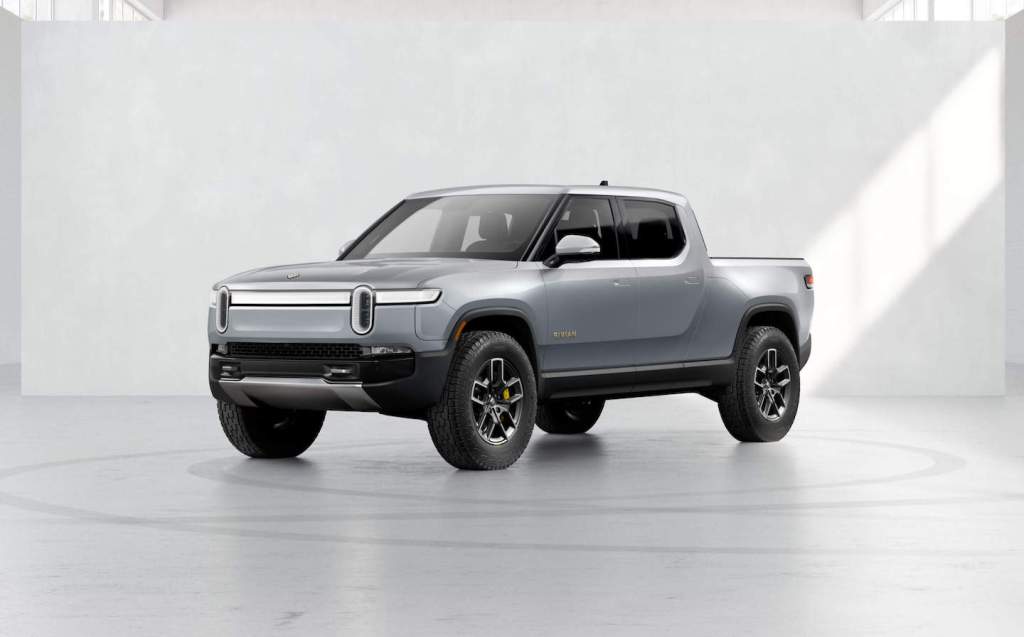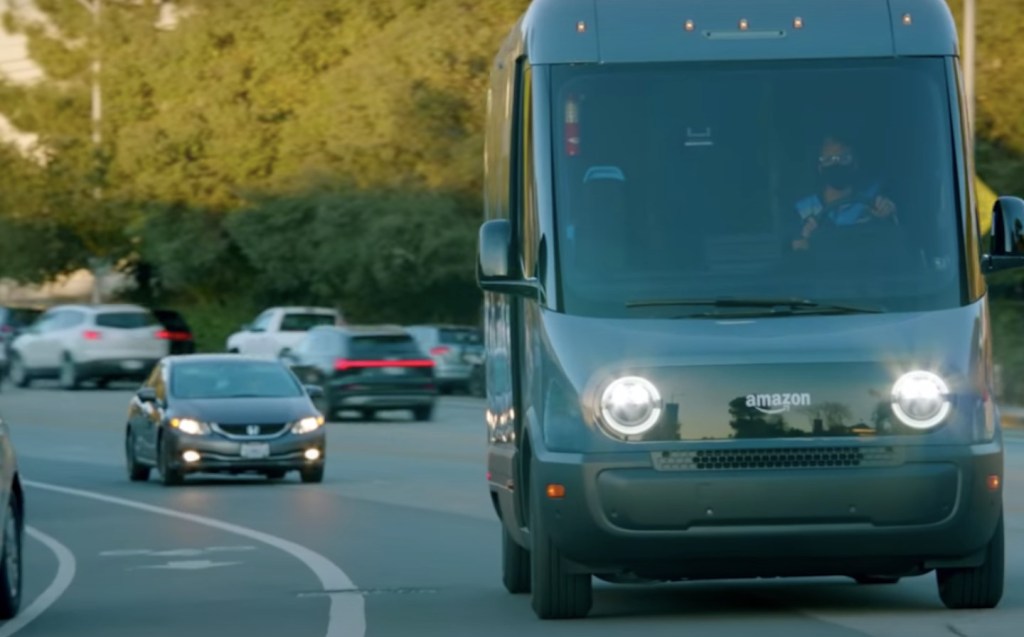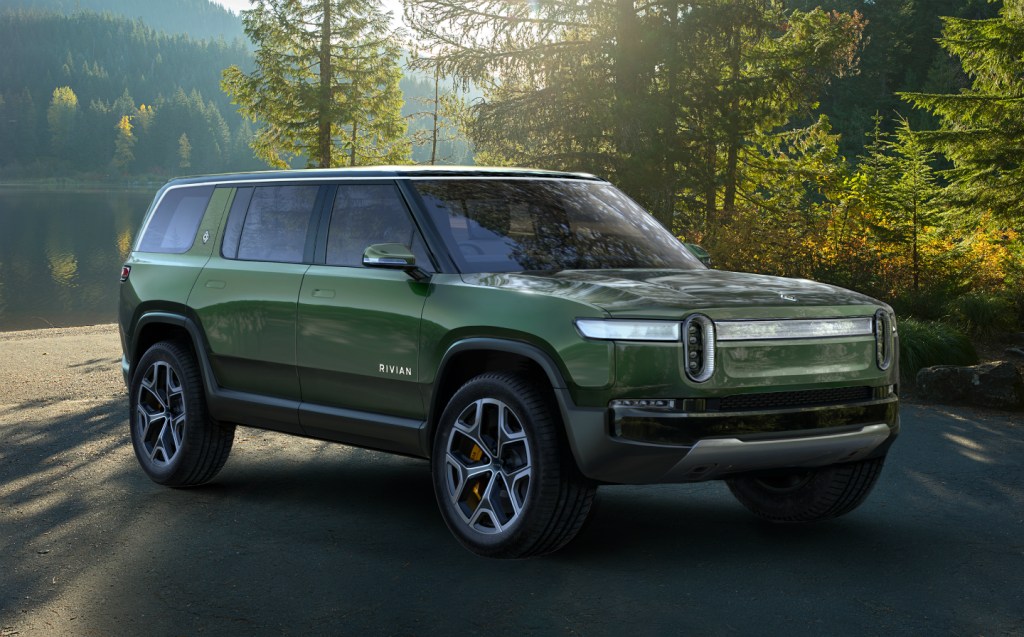Why Ford sold some of its stake in electric vehicle maker Rivian
Has the shine gone off a stock market wunderkind or is something else going on?
Share values in the electric vehicle manufacturer Rivian fell sharply earlier this week after major investors including Ford sold part of their stock, prompting some to wonder if the shine has come off the American start-up.
The 13% fall in Rivian’s stock price seen on Monday (May 9) was caused primarily by reports that Ford planned to sell eight million of its 102m shares in the company following the end of a 180-day “lock-up” period, during which early investors, which include Amazon with 162m shares, were prevented from selling shares.
Following reports of Ford’s plans to divest itself of some of its stock, Rivian’s share price of $24.77 (£20) was some 84% lower than its post-IPO (initial public offering) high of $179.50 (£145) a share. The firm’s value over the first three months of 2022 has plummeted by more than 50%.
Rivian made its spectacular stock market debut on the NASDAQ last November, raising $12bn, the single most successful initial public offering (IPO) since Facebook’s in 2012. With its stock continuing to climb thereafter, for a time, Rivian became the world’s third most valuable car maker behind Tesla and Toyota.

Since then, however, things haven’t gone smoothly for the company.
“The report of Ford selling 8 million shares is not what any Rivian investor wants to see,” said Dan Ives, a tech analyst speaking to CNN Business.
“The stock has been a debacle since the IPO. I think you’re seeing with lock-up ending, investors are hitting the sell button in a jittery market.”
Is Rivian stuggling?
A range of factors have conspired to wipe so much value off Rivian’s stock, not least a difficult start to 2022 for US tech shares in general driven by wider global factors such as the spectre of the Federal Reserve in the United States raising interest rates to combat runaway inflation and the ongoing invasion in Ukraine. This, according to market analysts, has led to the worst four-month start to the year since 1939.
In Rivian’s case, however, a range of internal issues have also been at play including the one currently bedevilling the rest of the car industry: global supply chain shortages.
Rivian began producing its first vehicle, the R1T electric pickup truck, at its Illinois plant last September and, in doing so, beat a number of other, bigger car manufacturers to market with an all-electric pickup including Ford, General Motors, Stellantis and crucially, Tesla. An SUV, the R1S based on the same platform, is also part of the company’s line-up.

As well as its passenger cars, Rivian has also signed a contract with Amazon to deliver 100,000 electric delivery vans by the end of 2024, taking up a significant chunk of its production capacity, and the start-up was reportedly in talks with the British government to build a £1bn factory near Bristol to increase its capacity by a degree, which would allow it to expand into other markets including Europe.
The firm, however, was haemorrhaging money with losses of almost $1bn (£734m) in the first half of 2021. By the time the R1T had launched, Rivian had lost more than $2bn since the beginning of 2020. That can, at least partially, be explained by the cost of tooling and expansion at the company’s Illinois factory as it prepared for the launch of its first models.
Despite tens of thousands of orders, Rivian simply hasn’t been able to get vehicles out the factory door nearly as quickly as it or customers would like. Just as the company had been preparing to ramp up production, it ran into similar supply chain issues as the rest of the global car industry, which is currently struggling with a combination of high demand and a worldwide shortage of computer chips.

These problems have forced Rivian to halve its planned production to 25,000 vehicles in 2022, though it built just 1,227 during the first three months of the year. Other small EV start-ups in the United States such as Lucid Motors have also reported significant supply chain difficulties, forcing them to revise production estimates for the year.
Ford’s reasons for selling Rivian stock
Rivian’s difficulties have taken the early sheen off a stock market wunderkind. Both Ford and Amazon have experienced large slumps in income for the first quarter of 2022 largely due to the fall in value of their investments in Rivian.
The mark-down in value of its investment in the smaller car maker has meant a $3.1bn first quarter net loss for Ford, with a 59% drop in first-quarter operating income for Amazon.
These losses notwithstanding, investment in Rivian has been good to both Ford and Amazon with their stakes in the firm still worth considerably more than their initial investments.
However, there are other factors at play. Where Rivian once held the edge being the first to market with an electric pickup, Ford has launched its own first electric pickup to rival Rivians, the F-150 Lightning. The company also sells the Mustang Mach-E SUV and is in the process of launching a pure-electric version of the Transit van. In March this year Ford said that it would introduce seven new electric models by 2024.
It seems that while keeping the large proportion of its stake, Ford is pulling some money out from its Rivian invetment at a profit in order to bolster its own EV programme. A spokesperson told financial publication Barron’s: “We sold eight million shares, representing just under 8% of our investment in Rivian. We think it’s prudent at this point to monetise a small portion of the investment.”
According to sources quotes by CNBC, Ford will use the money generated from the sale to invest in “lithium, nickel deals and battery JVs” (joint ventures) as it pursues its own electrification programme.
In November last year, Ford dropped plans to develop an electric Lincoln based on Rivian underpinnings, saying:
“We respect Rivian and have had extensive exploratory discussions with them. However, both sides have agreed not to pursue any kind of joint vehicle development or platform sharing.”
How the future of Ford and Amazon’s interest in Rivian will pan out remains to be seen, though Barron’s believes Ford’s comments this week suggest it plans to keep the rest of its Rivian stock “for a while”.
The electrification of its delivery fleet forms a big part of Amazon’s pledge to achieve net zero carbon emissions by 2040 with the Rivian delivery trucks contributing to that goal. It told Barron’s:
“Rivian is an important partner for Amazon, and we are excited about the future. Putting 100,000 electric delivery vehicles on the road by 2030 is no small feat, and we remain committed to working with Rivian to make it a reality.”
Related articles
- After reading about why Ford sold shares in Rivian, you may be interested to read that Rivian had a $53bn stock market IPO value
- You might also like to hear that Rivian has been in talks with UK government to set up a factory over here
- Looking to buy an electric car? Here are five of the best EVs to buy in 2022
Latest articles
- Aston Martin Valkyrie AMR-LMH hypercar hits track ahead of 2025 Le Mans challenge

- Porsche has begun testing the electric Cayenne

- Cupra Leon 272 eHybrid 2024 review: Bigger battery, better tech … but is it a Cupra?

- Porsche 911 GTS 2024 review: Hybrid heresy or more Stuttgart genius?

- Extended test: 2023 Vauxhall Astra Sports Tourer GS PHEV

- Ford Capri revival has faced a lot of flak… but are buyers put off? Here’s what visitors to the Festival of Speed had to say






